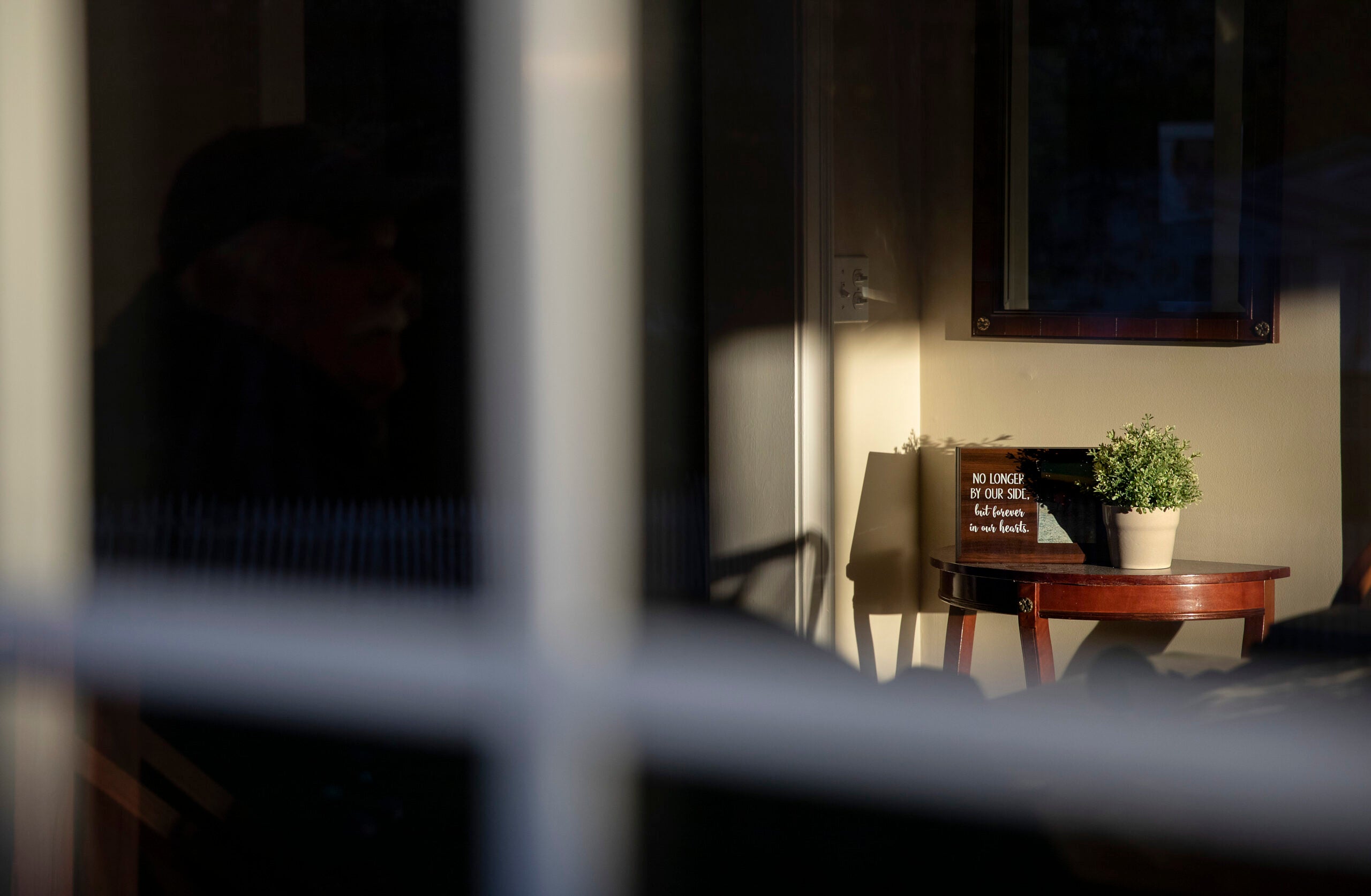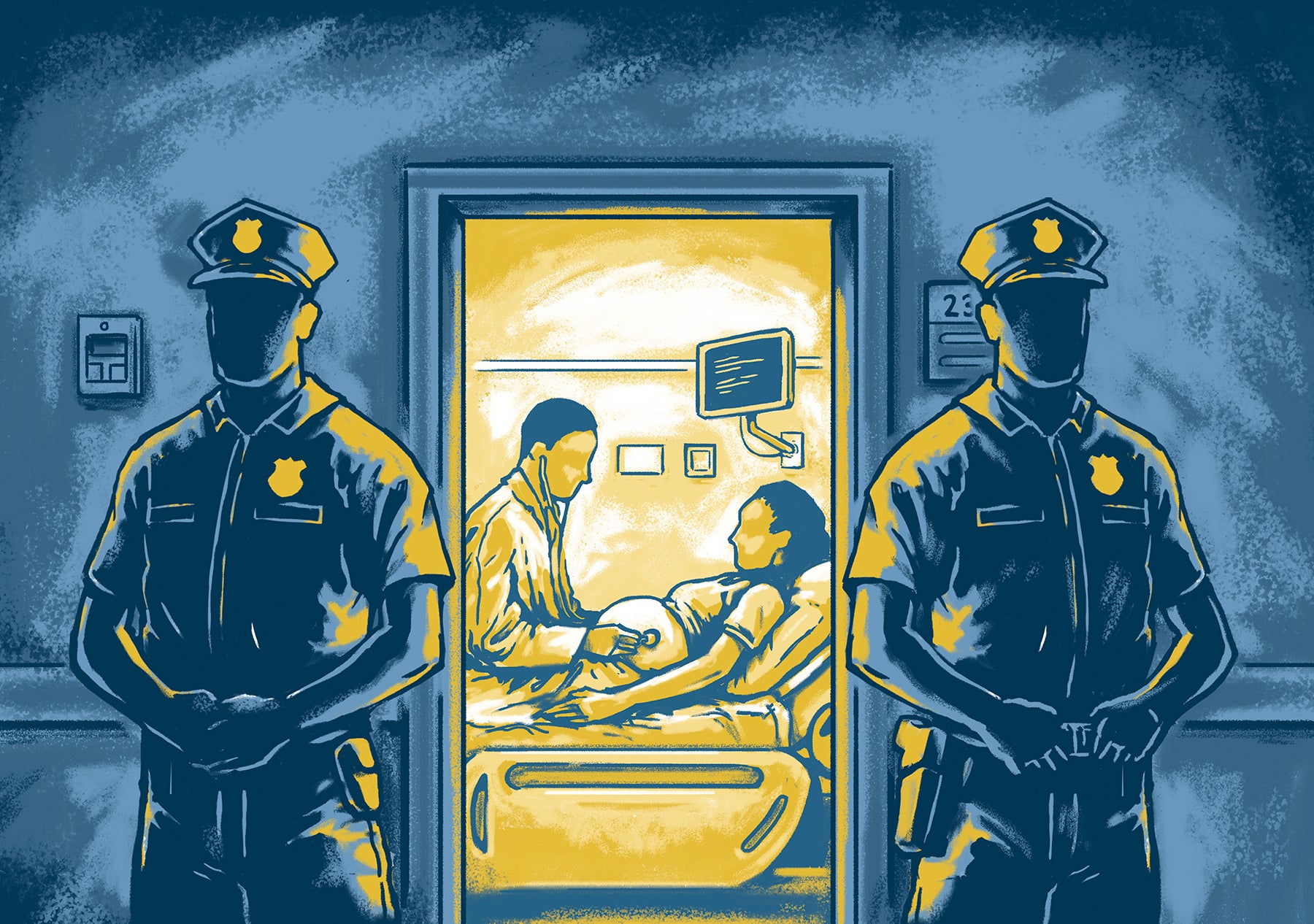Repeated violations at the Union Grove veterans home over the past five years have made the facility one of the most troubled state-run homes in the nation, an analysis by the Milwaukee Journal Sentinel has found.
In the past five years, Union Grove was cited for 62 violations and received fines totaling $250,000, and the facility was in the top five out of 117 state veterans facilities in the United States for having the most violations and fines, according to the analysis.
Luane Krall’s husband, Navy veteran Randy Krall, lived at the Racine County facility before he died in December 2020.
Stay informed on the latest news
Sign up for WPR’s email newsletter.
Luane described a series of events in her husband’s care that raised alarm bells.
In November 2020, Randy was taken to the hospital for severe dehydration. His chart from the veterans home showed he hadn’t had water for most of the day. While he got better after that episode, his condition deteriorated after returning to Union Grove.
On Dec. 19, 2020, Randy’s condition took a turn for the worse. The 69-year-old was dying, the newspaper reported. But no one contacted Luane until after Randy had died.
“Something is not right at that facility,” Luane told the Journal Sentinel. “It is unbelievable what Randy had to endure. It was horrible. No one should receive this kind of care. (Residents) really dedicated their lives to serve this country, and they are not served there.”
Recent citations from March include: failing to investigate reports of abuse to patients, not giving residents regular showers, infection control and unsanitary conditions, according to the state Department of Health Services.
Federal authorities are now reviewing the violations.
Read the entire report from the Milwaukee Journal Sentinel.
Wisconsin DHS: COVID-19 Weekly Recap
The seven-day average for new COVID-19 cases in Wisconsin is 1,838 as of Friday. The Wisconsin Department of Health Services has confirmed 12,997 total deaths from the disease.
Just over 61 percent of Wisconsinites are fully vaccinated — 82.7 percent of people age 65 and older, 58.4 percent of children age 12 to 17 and 25.1 percent of children 5 to 11 years old. As of Friday, 34.5 percent have received a booster shot.
UW-Green Bay awards first doctoral degrees in First Nations Education
The University of Wisconsin-Green Bay recently awarded four graduates with inaugural doctoral degrees in First Nations Education, and an additional eight are set to defend their dissertations in upcoming semesters.
Those 12 comprise the first cohort of graduates whose degree program was built with input from Wisconsin’s Indigenous nations, according to an article in Madison365.
One of the four graduates, Artley Murray Skenandore Jr., said he appreciated that the program highlighted Indigenous methods of sharing information.
“When you look at Indigenous nations, it’s all about our original knowledge base. And that original knowledge base is the oral history,” he said. “That’s the strength of how we duplicate ourselves as nations is that oral history.”
The program is two years and classes are mostly on weekends.
5th annual Black Girl Magic Conference held in Madison
More than 600 Black girls from grades four to eight came together for the annual Black Girl Magic Conference that took place this week in Madison.
The day-long retreat was founded by Rosa Thompson and began in 2018 with 80 students, Madison365 reported.
“It’s an amazing experience. The energy of the girls is just something that is unmatched. It feels like a marathon over the day, but with positive, great energy all day long,” Thompson, who is also executive director of Black Girl Magic Educational Services Inc., told Madison365 ahead of the big day.
According to the Madison365 article previewing the event:
“The Black Girl Magic Conference is a day of fun, networking, sisterhood and mentoring as young Black women connect with local Black women leaders to inspire and uplift one another. The conference will feature a morning fitness class to energize the girls when they arrive, dynamic breakout sessions led by industry leaders, community partners and entrepreneurs and a DJ spinning songs throughout.”
The conference is open to girls in fourth through eighth grade who identify as Black, multiracial, or African-American and attend school in a Madison area school district, according to the event listing.
FPC Live proposes concert venue next to Bucks arena
The concert promotion company FPC Live is proposing to build a venue complex on land adjacent to Fiserv Forum in downtown Milwaukee.
The multi-level complex would be built on a section of a vacant 5.7-acre parcel owned by the Milwaukee Bucks and where the Bradley Center once stood.
The $50 million complex would have space for 4,000 people in one ballroom and 800 concert-goers in another room.
FPC Live, the Madison-based division of Frank Productions, plans to begin development this year if it wins zoning approval from the Milwaukee Common Council and the mayor.
Text messages document last communications between loved ones before COVID-19 took their lives
“Strange artifacts of a terrible time” is how New York Times opinion writer Alicia P.Q. Wittmeyer describes the text messages between loved ones that connected, and yet kept separate, families and loved ones ravaged by COVID-19.
The U.S. has surpassed 1 million deaths caused by COVID-19, and the New York Times has since collected text messages between loved ones and presented 13 of them in an interactive story.
“We asked readers who submitted these final messages why they decided to share. Most said they hoped they could serve to memorialize the person, often in a way that they weren’t able to at the time of death. But many said they also hoped their messages could make the pandemic feel real, in what seems like its waning days, for those who hadn’t experienced its toll up close, and in some cases, for whom one million deaths still wasn’t enough to make them believe,” Wittmeyer wrote.
In one exchange, a 74-year-old pediatric dentist from Austin, Texas wrote to his daughter: “I want to be in your garden.” She responded, “You will be soon!!” He died 10 days later.
“These text exchanges are difficult to read: deeply moving, devastating in their intimacy, profoundly human,” Wittmeyer wrote. “What makes them so effective, I think, in bringing home the reality of one million dead from Covid is not that the texts make each person more vivid to us, although they do. It’s that they make their deaths more vivid.
Editor’s note: The Associated Press contributed to this report.
Wisconsin Public Radio, © Copyright 2025, Board of Regents of the University of Wisconsin System and Wisconsin Educational Communications Board.







